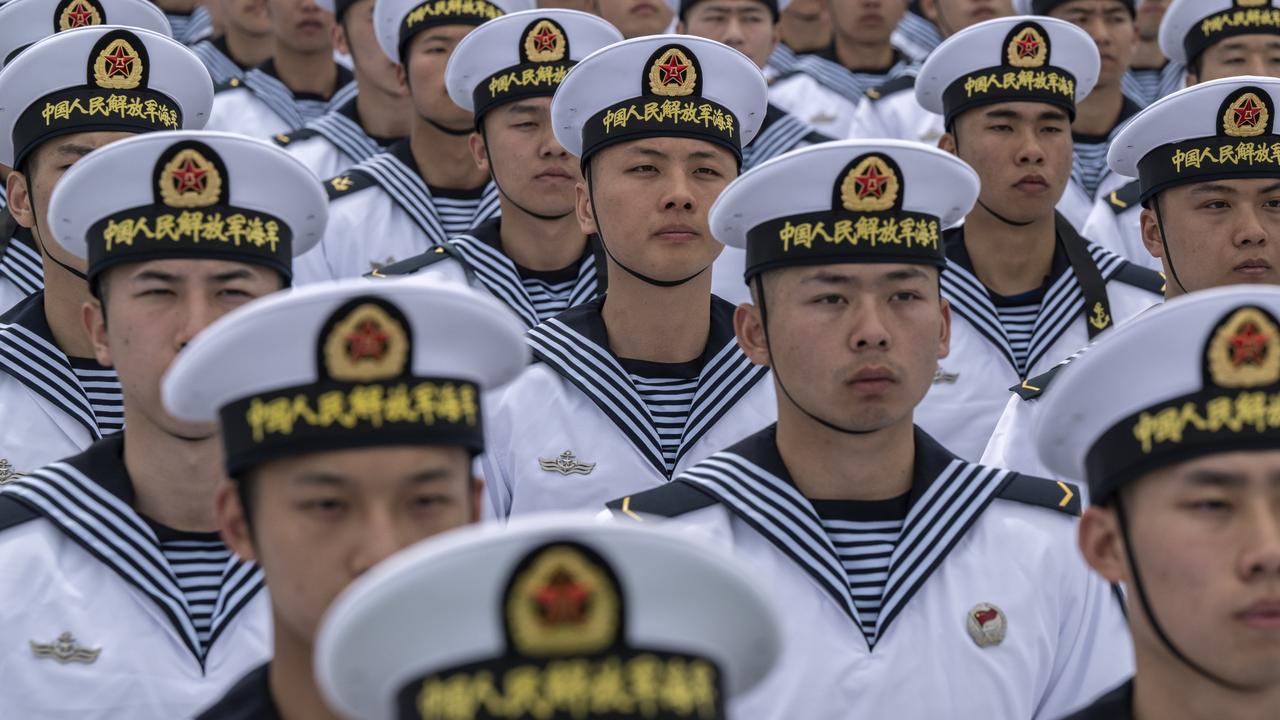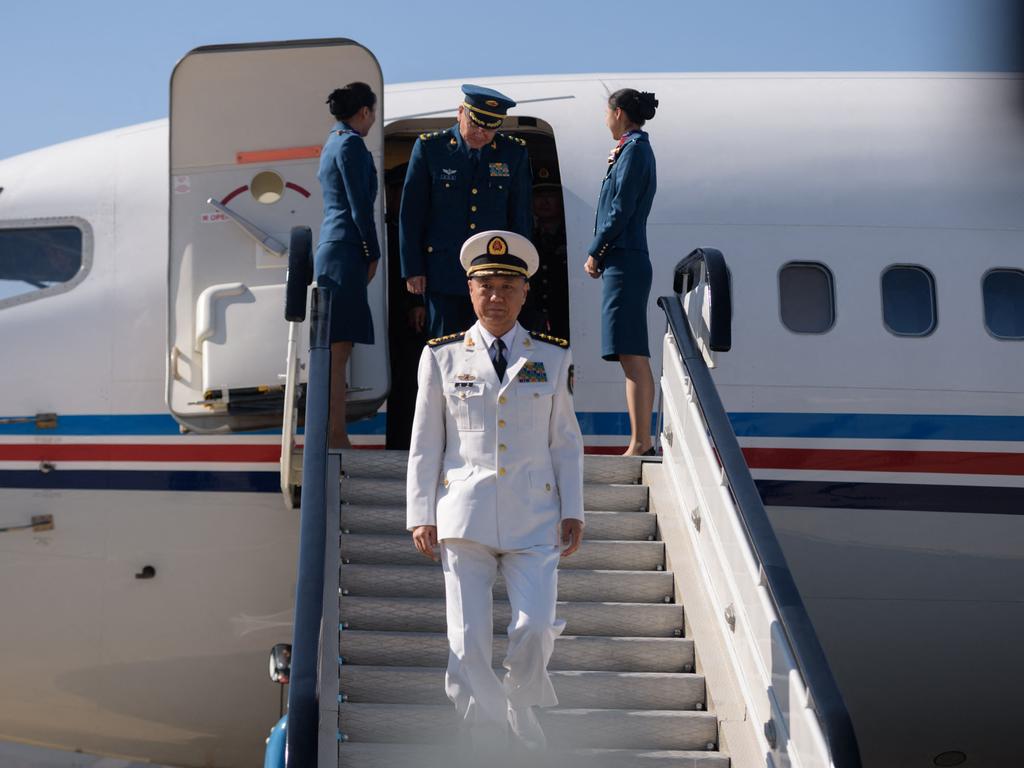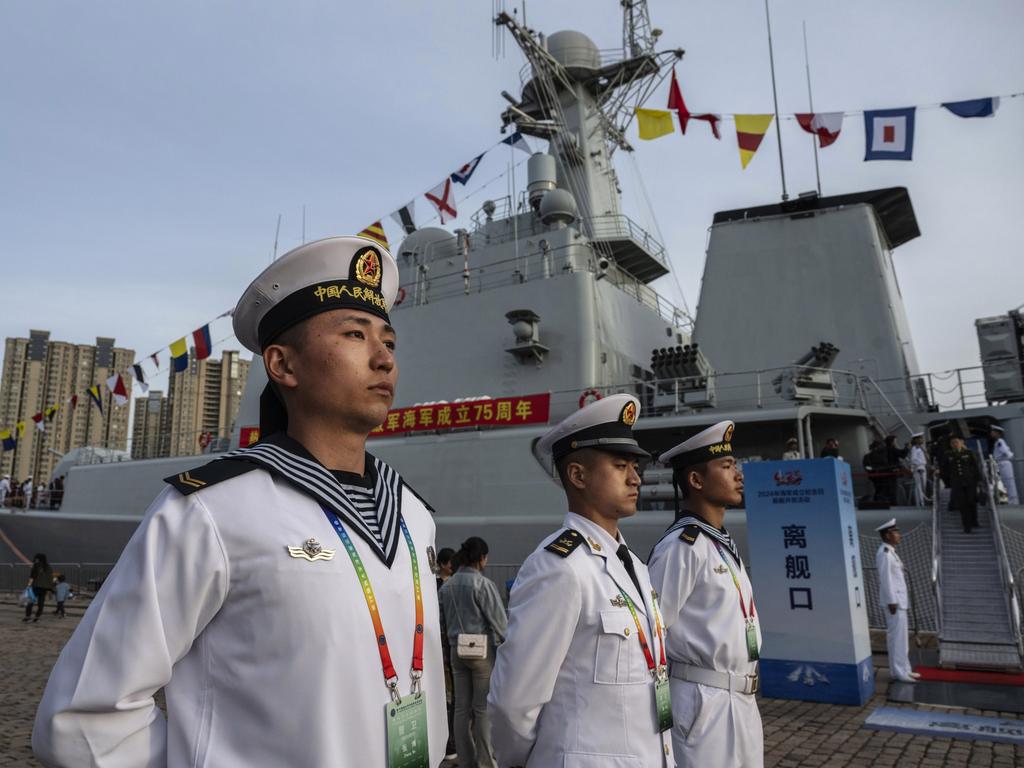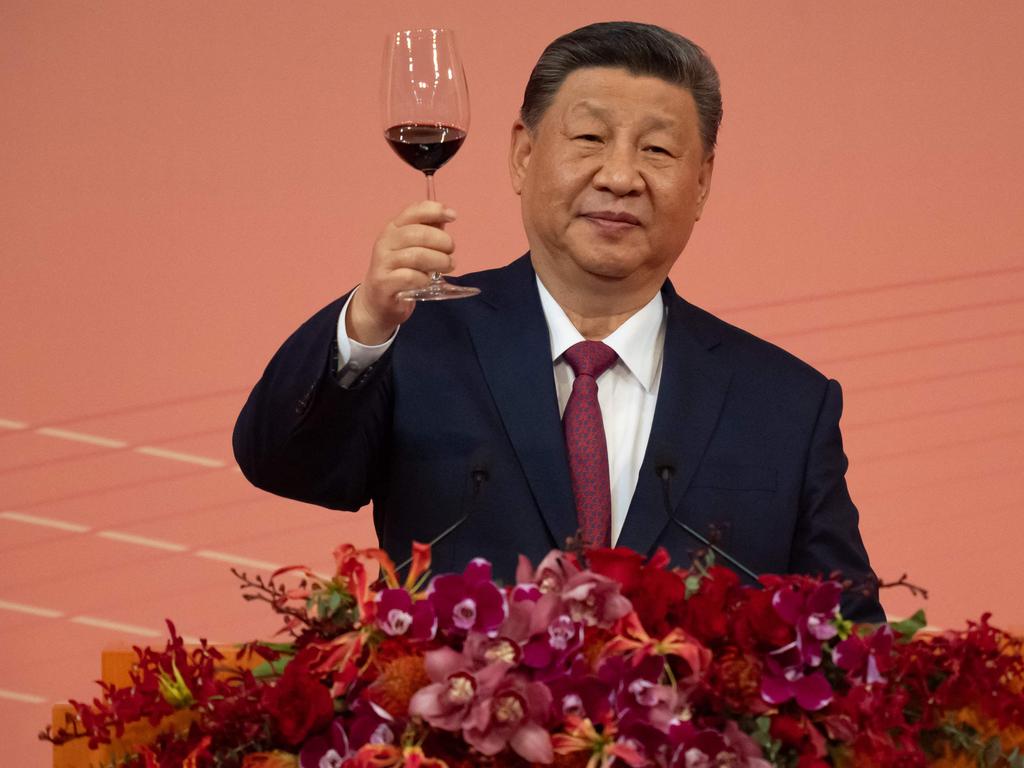China’s corruption crackdown on top military brass casts fresh doubt on Taiwan invasion readiness
The stunning sacking of China’s top military officials has sent shockwaves through the world’s largest military.
Innovation
Don't miss out on the headlines from Innovation. Followed categories will be added to My News.
A brutal new purge from the Chinese government has seen two high-ranking military officials reportedly fired from Parliament without explanation.
The country’s top legislative body revoked the membership of Lieutenant-General You Haitao and Vice-Admiral Li Pengcheng during a meeting on December 25, according to a report from the National People’s Congress Standing Committee.
Lt-Gen You was once a deputy commander of the People’s Liberation Army (PLA) Ground Force.
Vice-Adm Li is the navy commander of the Southern Theatre Command, which oversees the South China Sea region that has been fraught with territorial tensions.
The legislative body only said Lt-Gen You and Vice-Adm Li were suspected of violating law and discipline — a common euphemism for corruption.

On November 28, China’s defence ministry announced that Admiral Miao Hua had been suspended for “suspected of serious violation of discipline”
Such arrests are now commonplace in China, where President Xi Jinping has waged a wide-ranging campaign against official corruption since coming to power more than a decade ago, with critics saying it also serves as a way to purge political rivals.
But the removal of Miao suggests the crackdown has entered a new phase — not only was he one of the country’s most senior military officials, but he was a protege of President Xi himself.
His removal, which indicates conviction is a foregone conclusion, also raises questions about the battle-readiness of the world’s largest military and its stated goal of invading Taiwan by 2027.
As a member of China’s Central Military Commission (CMC) and director of its political work department, Miao oversaw all senior People’s Liberation Army (PLA) promotions, making him more powerful than the country’s actual defence minister, Dong Jun, another Xi protege who is also reportedly under investigation.

Miao’s removal sent shockwaves through China’s military and may have “significant ramifications for his patronage network”, Dr Andrew Erickson and retired US Navy Captain Christopher Sharman said in a note for the US Naval War College’s China Maritime Studies Institute (CMSI).
“Admiral Miao is the seventh CMC member to be purged since Xi assumed power in 2012,” they wrote.
“The humiliation of his public removal is especially embarrassing because Xi transferred him to the PLA Navy in 2014, promoted him to full (three-star) admiral in 2015, and elevated him to the CMC in 2017. His suspension suggests Xi, or others, may have wanted to make his removal an example for the PLA.”
Miao, born in 1955, became the country’s youngest serving general when he was promoted by President Xi in 2015.
His elevation to the CMC in 2017 marked the pinnacle of his career and was “part of a pattern in which Xi has reassigned and promoted officers unconventionally,
apparently to bypass established networks and impose his control”, the CMSI researchers note.
It remains unclear exactly what Miao is charged with.
“My gut tells me that this whole thing revolves around Miao taking bribes to get people promoted in grade (not rank) to flag officer billets,” former Assistant Air Attaché at the US Embassy in Beijing and longtime PLA analyst Ken Allen told the CMSI. “As such, each of them will also most likely be suspended.”
The apparent purge of the PLA Navy comes after the removal in August of nearly the entire leadership of the PLA Rocket Force, which controls the bulk of China’s most advanced missiles and nuclear weapons.

All in all, at least 15 senior PLA officials and defence industry executives have fallen over the past year-and-a-half.
The CMSI authors argue that the investigations are “not about corruption per se”, which is endemic in the Chinese military, but rather reflects a growing concern by President Xi that his armed forces are not capable of executing on his 2027 vision.
His actions suggest “maximum preparation for Taiwan contingencies on his watch, even at the cost of short-term setbacks and bureaucratic churn”.
“What is clear is that Xi is prioritising military control and effectiveness for major missions over stopgap internal security efforts or symbolic prestige,” they wrote.
“Prioritising either of those latter objectives would be far simpler, easier, cheaper, and more direct than the difficult, sophisticated work that he is visibly pursuing — possibly amid political infighting as well. These are the actions of a power-obsessed but rational and formidable authoritarian leader deadly serious about preparing for, and possibly waging, major war.”
It comes after the Pentagon last week suggested corruption in China’s military leading to the removal of top leaders may hamper the country’s efforts to modernise its armed forces.
In 2023, Beijing’s forces “experienced a new wave of corruption-related investigations and removals of senior leaders which may have disrupted its progress toward stated 2027 modernisation goals”, the congressionally mandated annual report on Chinese military and security developments, released last Wednesday, said.
“Several leaders investigated or removed for corruption oversaw equipment development projects related to modernising the PRC’s ground-based nuclear and conventional missiles,” it said.

The 2027 goals that may be impacted include “boosting the speed of modernisation in military theories, organisations, personnel, and weapons and equipment”, according to the report.
A senior US defence official noted that “frequent turnover and replacement of high-level personnel certainly can be disruptive”, while efforts to uncover corruption can slow down projects and also spiral from one official to others who are connected.
But the Pentagon also said that China’s military — which it has been working to modernise for several decades — has made recent advances.
That included in the realm of operational nuclear warheads, which increased from more than 500 last year to more than 600 in 2024.
Beijing’s “expanding nuclear force will enable it to target more US cities, military facilities, and leadership sites than ever before in a potential nuclear conflict”, it said.
Its air force is also making gains and “is rapidly approaching technology typical of US standards”. And China has “the world’s leading hypersonic missile arsenal and has dramatically advanced its development of conventional and nuclear-armed hypersonic missile technologies during the past 20 years”, according to the report.
Beijing hit back on Thursday, saying that the report was “full of bias”.
“It is just an excuse for maintaining [the United States’] own military hegemony,” foreign ministry spokesman Lin Jian said when asked about the report at a regular news briefing.
“We urge the US side to abandon its Cold War mentality … and stop sending, year after year, these irresponsible reports and to work toward maintaining stability between the United States and China.”
The United States has identified China as its most consequential challenge, but insists that conflict is not inevitable and aims to deter an attack on Taiwan by Beijing’s forces through American military deployments in the Pacific and a network of allies in the region.
China claims Taiwan as part of its territory and has said it will never renounce using force to seize it one day, while the United States has a longstanding arrangement to provide Taipei with the means to defend itself.
— with AFP
Originally published as China’s corruption crackdown on top military brass casts fresh doubt on Taiwan invasion readiness









